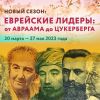Last week, Booknik read a novel about the USSR, a novel about Baku, a study of Israeli successes, and another one on Yiddish storytelling. He also talked to Professor Judith Hauptman about Judaism and feminism, and discussed the unbearable freedom of creativity with artists, watched A Film Unfinished, directed by Yael Hersonski, and The Elusive Revengers, attended the 2-in-1 film festival, waited for rain, traveled, tried on masks of Biblical heroines, spoke with Moshe Idel, erected the Tower of Babel again, saved himself from misfortune, cooked a sweet omelet, and discussed children’s insidiousness. Booknik Jr. who is not insidious at all celebrated his birthday, read about the wise man Gamaliel the Elder, quirks of country life, and being a king, and after that, he took a walk around Jerusalem for this is something he never tires doing.
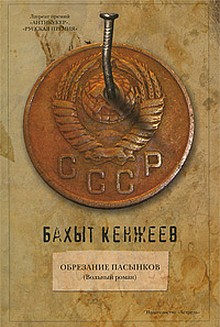
Pollarding the Offshoots, by Bakhyt Kenjeev
A madman in a madhouse. A pilot of a commercial flight who butchered his bosun. (What does a bosun do there, anyway?) A Scipio, the poet who’s finished with poetry but he wrote a brilliant essay about it that is either romantically naïve or cynically alienated. Later, he becomes a dissident prose writer who is embraced in the West. A common soviet schoolboy Ivan Sviridov. Another soviet schoolboy, also Sviridov but his first name is Sergey, and he lived twenty years before the first Sviridov, and dreamed about catching spies. And, there is the third Sviridov, named Leonid who is a Canadian citizen, and ecologically aware. Who are all those people? Are they the three generations of stepfathers and stepsons? Are they merely acquainted? Are they the one and the same schizoid and his multiple personalities? Booknik reviewer Yevgenia Ritz reads the novel by Bakhyt Kenjeev, and tries to untangle it.
A Yogi, a Dervish, a Rastafarian
A Persian, by Alexander Ilichevsky
This is a gabbeh novel where different multicolored threads of the plot are entwined in a peculiar ornament. This is the life of Velimir Khlebnikov in the Orient. This is the story of a houbara bustard population: it is an almost extinct bird whose flesh is believed to bring back youth. This is a practical manual on combat falcons breeding, the study of Bahaism and Hurufism basic principles, the biography of Osama bin Laden, and the history of Baku in the early and late 20th century. The plot, fragmented throughout the text, picks up all the threads, and cements the entire narrative. Booknik’s tireless reviewer Yevgenia Ritz reads the novel by Alexander Ilichevsky, and analyzes it.
The Land of Business Undertakings
Start-Up Nation: The Story of Israel's Economic Miracle, by Dan Senor and Saul Singer
The authors of this book published under the auspices of the Council on Foreign Relations that is an influential U.S. brain trust, had this very ambitious goal to scrutinize Israel as a global center of entrepreneurship, and technological innovation, and to analyze how the country became what it is now. Their figures are telling. Israel has the highest concentration of new companies in the world, and in 2008, the venture capital investments per capita were 2.5 times higher than in the U.S., and 30 times higher than in Europe. The authors’ explanations are traditional enough, and they are sociological, so to say. “Jews are that smart” is not what the authors claim, and there is only one moment where they refer to the Talmudic tradition to reveal the truth in discussions. Booknik reviewer Lesya Bobrova reads Start-Up Nation, and discusses the Israeli success.
…and many other wondrous wanderings in the Books & Reviews section.
Feminism + Judaidm = Justice
An interview with the Professor Judith Hauptman
This year, Judith Hauptman, the professor of the U.S. Jewish Theological Seminary came to Moscow to teach at the Russian State University for the Humanities’ Center for Biblical and Judaic Studies. Her first visit to Moscow took place over forty years ago when, together with other American Jews, she came to support soviet Jews in their struggle for free emigration. This time, Professor taught the Introduction to Talmud, and her public lecture was on The Feminist Critique of Judaism, and How It Took Women from the Sidelines to the Center. The audience was rather skeptical about her discussion of leaders roles in Judaism won by Jewish feminists in the U.S. The students were silent, and they only smiled, without asking any questions. They thought the Russian society was conservative, and unprepared to see women in the roles traditionally allotted to men. Booknik contributor Sofya Kopelyan interviews Judith Hauptman on feminism, Judaism, and justice.
…and many other thoughtful thorns in the Articles & Interviews section.
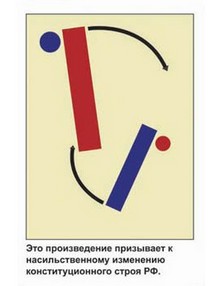
Prior to the Russian contemporary art show Counter Point opening, seven potential participants refused to participate, demonstrating their solidarity with Avdey Ter-Oganyan, and their protest against the Ministry of Culture’s ban on four of the artist’s works in the Radical Abstractionism series. Those refusnik artists were Yury Albert, Andrey Monastyrsky, Igor Makarevich, Vitaly Komar, Vadim Zakharov, Yury Leyderman, and Valery Koshlyakov. Ter-Oganyan demanded his works to be brought from Moscow, and exhibited. His was the action “to draw attention to the situation between culture and the powers, and to heighten the absurd conflict with more absurdity.” A couple of days before the opening, all works by Ter-Oganyan were included in the show, with those four “seditious” pieces. Booknik’s Paris reporter Kira Sapgir talks with the rebelling artists on creativity, and protest.
The Truth and Lies of the Warsaw Ghetto
On the screen, we see dirty apartment houses, emaciated children, swarming people in a marketplace, cops with six-pointed stars on their sleeves, corpses in the streets, flutes of Champaign, and merry dances in a restaurant. The documentary A Film Unfinished by Yael Hersonski is rich in striking contrast: luxury and poverty, tragedy and routine, doom and indifference, lies and reality. The footage is revealing for it was made by Wehrmacht cameramen in the Warsaw Ghetto, in 1942, shortly before the ghetto inhabitants were transported to Treblinka en masse. The film started by the Nazis remained unfinished forever. Its fragments were included into various documentaries about the WW2, and the Shoah, and the filmmakers who used the footage were sure they had the objective chronicle of ghetto horrors. However, in 1998, the British film scholar Adrian Wood unearthed direct evidence that even the most terrifying scenes in that film were carefully staged by the Nazis. Booknik contributor Lesya Bobrova tells a story of the Nazi propaganda.
Quick Sands of Art
The days of Jewish culture that took place in Kharkov in the early October could appeal to all senses of the interested audience. On October 3 through 10, the public could watch paintings and performances, listen to klezmer (of course), and taste some national cuisine. However, Booknik’s Ukrainian reporter Halina Kovalchuk was chiefly mesmerized by sand paintings and animations.
…and many other watchable watches in the Events & Reports section.
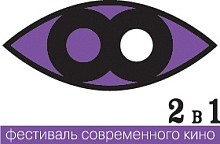
The 2-in-1 film festival is currently taking place in Moscow. Israeli films are not a part of the competition this year but this does not mean that Booknik is not interested. Self-determination, a search for one’s own place and identity, war and peace, quirks of love, and difficulties of communication in closed communities, and in the context of global problems are some of the themes presented in various festival programs. Booknik’s contributing editor Dina Suvorova reports on the festival events past and future.
Waiting for the Rain
The discussion initiated by the latest column by Booknik’s own Talmud scholar Reuven Kipervasser on a man’s help to his ex-wife brought to the columnist’s mind another Bereshit Rabah story about rain, mercy, and not altogether pleasant nature of respectable citizens.
…and many other fabulous fables in the Columns & Columns section.
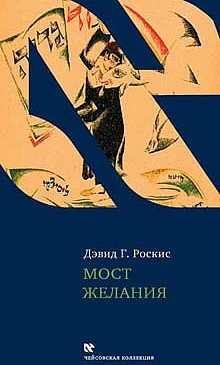
The Text and Knizhniki Publishers have prepared this book in the Chase Collection series published with the support of the AVI CHAI Foundation. The book by the U.S. scholar tells about formation and development of the narrative genre in Yiddish literature, in 18th-20th centuries, as well as the state of Yiddish culture in our times. Booknik happily publishes an excerpt of the chapter on Eisik Meir Dick who created Yiddish lit that later was labeled “mass.”
…and many other retroactive reads in the Stories & Essays section.
Biblical Women
Booknik readers have already tried on their masks of Biblical heroes. Now, it’s the females’ turn. Bible tells less about women but their portraits are more vivid. When you complete the test, you might imagine yourself a female character of Tanakh, and place that character in the modern life.
Travels and Travelers
This quiz is on Jewish travelers who crossed the world, and globetrotters of the world who visited the Holy Land. Bon voyage!
…and many other testing tests in the Contests & Quizzes section.
Don’t Grudge the Brew 58: Sweet Tender Omelet
Booknik’s virtuoso chef Roman Gershuni carries on his omelet experimental variations. This breakfast is for sweet-teeth who put prunes in their borsht, and smother cheese in jam and honey. In short, the people who prefer to start their meals with desserts. Sweet omelet is an excellent first, second, and third course, and it is so tender that it should be held down with a fork to stay in touch with reality.
Fiddle, Pipe, and Noose
Misfortunes never come alone. They usually crash in with a whole army of problems. So what do you do? The main thing, is not to fuss for every respectable Jew has three closest friends, Fiddle, Pipe, and Noose. They will help when the times are hard. The G’Night Band and Psoy Korolenko will tell you in what manner.
The Interview with Professor Moshe Idel
The Israeli scholar Moshe Idel is often called the second most important Kabbalah expert after his teacher Gershom Sholem. He is certainly the greatest of living ones. Mircea Eliade refers to his work. Umberto Eco names him among the sources for his inspirations when he wrote Il pendolo di Foucault. His rational and scientific approach to Kabbalah, and his attempt to bridge Jewish mysticism, and European philosophy of the 20th century brought a well-deserved fame to Idel. In the late September, he visited Moscow on the invitation of the Eshkolot Project supported by the AVI CHAI Foundation, presented his lecture on music and Kabbalah, and the mini series of seminars on the birth and ideas of Hasidism. Booknik proudly presents the scholar’s interview on video. Again.
A Flickering Jew 7: I’m from Odessa, Hi There!
We know the face of this very talkative man with a crook’s moustache, and eyes lined with blue from our childhood. We recognize it instantly if we went to the movies to see The Elusive Avengers as many times as present kids watch the Harry Potter saga. The charismatic Odessa Jew Booba Kastorsky, the cabaret actor and original singer of satirical couplets, the friend and assistant of four “little red devils” was so much loved by soviet moviegoers that the cinematographers wrote apart for him in this eastern’s sequel. Although, in the end of the second film he dies struck down by a treacherous bullet, thus stepping from the cabaret stage right into the pantheon of revolutionary martyrs. Booknik’s editor-in-chief Sergey Kuznetsov tells about the next flickering Jew.
Interfluval Speech
The attendees of the Comment Party discussed the archetypal history of the Tower of Babel, that is they discussed architecture, society, and language. Sometimes, simultaneously. Joking. The Eshkolot Project program director Semyon Parizhsky managed to construct those “blocks of time” out of ten minutes given to every speaker. Booknik happily reports on the event, in walking and talking pictures.
…and many other colorful calls in the Video Blog section.
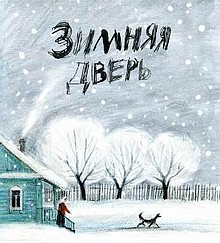
The Winter Door, by Stanislav Vostokov
Have you ever been to the countryside? See? Or have you? The country life is somewhat, erm, peculiar. Have you noticed? Well, you sure will if you read short stories by Stanislav Vostokov who is a long-standing countryside dweller himself. Look: there’s a cat who lives in a bucket, in a tree. Why? This remains unclear. Or: in the house, there’s a special door for winter, and another one for summer. See now? It’s all very, very complicated.
Gamaliel the Elder
The celebrated sage Hillel had the grandson named Gamaliel who later became almost as great a scientist as his grandfather. He was called “The Elder” because he was the first of six subsequent sages who all bore the same name. His deep knowledge of Torah brought him the title of “Raban” which means, “our teacher.” He was so wise that even the king came to him for advice. Marina Karpova and Yevgeny Levin tell his story.
Travelling Around Streets and Pages
There are many ways to have walks in a city. You may take a guided excursion when they tell and show you everything. Or, you may buy a guidebook, and walk the streets all by yourself looking for interesting buildings, and monuments. Or, you may read a book, and then follow its characters around. Booknik Jr. invites you for a walk in the Jewish Quarter of Jerusalem’s Old City with Yelizaveta Guller where you will see the places little Puah of Forever My Jerusalem used to live in.
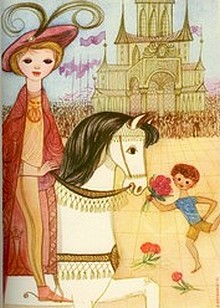
Król Maciuś Pierwszy, by Janusz Korczak
What do the boys dream of? They sure wish to be kings, and rule their own lands. Or, to command their own victorious armies, and enter conquered cities astride a beautiful white horse. What do little kings dream of? They want to become common boys again. To have mothers and fathers, to be patted on their heads, to be given milk and eggs sunny side up for breakfast. To be scolded for something or to be praised for some other things. To be loved and disciplined. Maciuś would just love it. He dreamed of being a common child again but he was a king. Nadya Kislyuk reads another beloved book of her childhood.
A School Express for Wild Artists
Who planned anything for the weekend? There were three variants, for those who wanted to draw pictures, those who wanted to talk, and those who wanted to have fun. Booknik Jr. preferred to have (and make) fun, so he completed his task brilliantly. We shall tell more about his birthday party. Stay tuned.
Silly Happiness
First, they don’t smile. Then, they don’t turn around. They never want to sit up, grow their teeth, crawl, and, finally, walk. Oh, they could, for three neurologists, two pediatricians, and five to eight examinations confirm that they are developed enough to do all that. Probably they just mock you, Booknik Jr. contributing editor Alexandra Dovlatova-Mechik suspects.
…and many other mocking mackerels at Booknik Jr., also known as Family Booknik, our own web site for kids and their parents.
Image and Text in Jewish Culture
The Eshkolot Project supported by the AVI CHAI Foundation, and with the help of the art historian Boris Khaymovich thought of a new intellectual temptation for us. This time, it is visual. A public lecture, and a mini series of seminars will offer us to see the world through the eyes of Jewish artists of the past. The past in question is so remote that the art at that time was canonical, and Jewish artists put murals in synagogues, and illustrated religious tracts. This artistic marathon has started on October 24.
Five words. Or less. Booknik and Family Booknik are supported by the AVI CHAI Foundation.









